
Futures Week is an annual virtual conference that allows participants to explore the future. Join us to examine emerging issues, the opportunities and challenges we might face, and how foresight can drive transformation. Futures Week is open to the public, and we look forward to welcoming a broad audience of public servants, foresight practitioners, and anyone interested in future-focused topics, dialogue, and insight.

We are a federal government organization that conducts foresight. Our mandate is to help the Government of Canada develop future-oriented policy and programs that are more robust and resilient in the face of disruptive change on the horizon. Visit our website to find out more about our foresight work.

Futures Week is an annual virtual conference that allows participants to explore the future. Join us to examine emerging issues, the opportunities and challenges we might face, and how foresight can drive transformation. Futures Week is open to the public, and we look forward to welcoming a broad audience of public servants, foresight practitioners, and anyone interested in future-focused topics, dialogue, and insight.

We are a federal government organization that conducts foresight. Our mandate is to help the Government of Canada develop future-oriented policy and programs that are more robust and resilient in the face of disruptive change on the horizon. Visit our website to find out more about our foresight work.
Thank you for joining us at Futures Week!
Follow us on social media to stay up to date and get the latest content:
Interested in joining the Federal Foresight Network?
Email the Policy Horizons Engagement team
Join our mailing list to receive our newsletter:
Sign up
Sign up for our mailing list to be updated on other Policy Horizons Canada news and events.
A conversation among government foresight leaders about the futures and disruptions they are exploring.
Examining the circumstances, innovations, and events that could impact Canadians in the next decade.
Peter Schwartz shares his thoughts on what foresight has taught him and his insights into the pivotal uncertainties of the next decade.
Exploring the emerging issues that could be used to sow societal divisions in Canada.
Looking at how the future of living arrangements could be shaped by demographic and economic changes, climate change and cultural differences.
Examining the growing challenges to and possibilities for meeting basic needs.
Examining the new dynamics of global power and influence.
Looking at Canada’s position in the new dynamics of global power and influence.
Exploring threats to humanity: what is an existential risk and why is it important to be aware of them.
Exploring the commercialization of space and its potential implications for regulation, international cooperation, and sustainability.
Examining the polycrisis and what it could mean for society, governments, and the future.
Looking at systemic transformation and how we can move towards sustainable futures.

Co-chair, Millennium Project, Brazil
Session: Existential risks
Rosa Alegria is a well-known female futurist with a global reputation, who works as an international lecturer, teacher, and consultant. She is the co-founder of the Movement Media for Peace and a member of IVOHOPE - Images and Voices of Hope. Rosa is also the editor of the trends newsletter Radar 21 and co-chair of the Brazilian Node of The Millennium Project.
With 22 years of experience as a professional futurist, Rosa has been the Research Director of the Futures Group at the Sao Paulo Catholic University for 15 years. She is on the executive board of the World Futures Studies Federation and is part of the core team of Teach the Future, a global movement that promotes futures literacy among teachers and students. She also leads the Brazilian hub of the Teach the Future movement.
Rosa's humanistic vision of the future sets her apart as a special voice in strategic foresight. She earned her Master of Sciences in Studies of the Future from the University of Houston in 2004. Additionally, she has specialized in Sustainability from Schumacher College in England, Creativity from the CCL Center for Creative Leadership and Global Management from Morehouse College in the United States.

Director, Foresight Outreach, Policy Horizons Canada
Session: Opening
Imran is the Director of communications and outreach. He has worked on forward-looking policy issues at Horizons, including emerging technologies and the rise of Asia. Prior to joining the public service, he worked in Southeast Asia on international development issues, poverty reduction, governance, and regional economic integration. He holds a master’s degree in International Relations from Dublin City University.
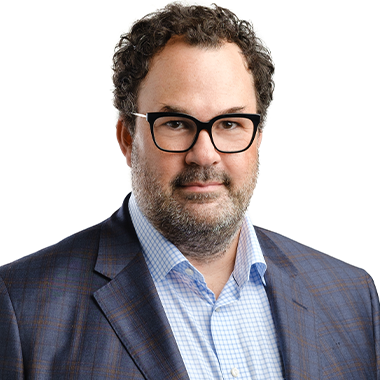
Senior Vice President, Policy, Business Council of Canada
Session: Geotechnomics: Canadian perspectives
Robert Asselin leads the policy team at the Business Council of Canada. He has written extensively on innovation and industrial policy. Robert brings more than 10 years of experience in providing policy advice to government, including in roles as Policy and Budget Director to Canada’s Finance Minister and as Advisor to Prime Ministers Paul Martin and Justin Trudeau.
Prior to joining the Council, he spent two years at BlackBerry as Senior Global Director, Public Policy. Robert also spent nearly a decade in academia as Associate Director of the Graduate School of Public and International Affairs at the University of Ottawa and as Visiting Public Policy Scholar at the Woodrow Wilson International Center for Scholars in Washington, D.C. He continues to serve as a Fellow at the University of Toronto’s Munk School of Global Affairs and Public Policy and at the Public Policy Forum.
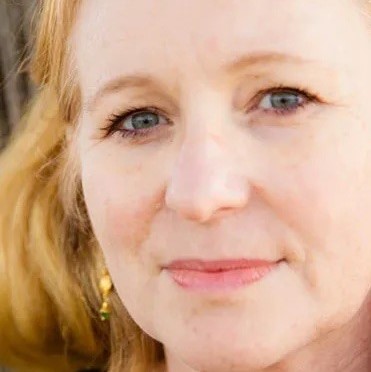
Filmmaker, writer, educator, and President, International Bateson Institute
Session: The world we desire: Systemic transformation
Nora Bateson is an award-winning filmmaker, research designer, writer, educator, international lecturer, as well as President of the International Bateson Institute based in Sweden. She is the creator of the Warm Data theory and practices. Her work asks the question “How we can improve our perception of the complexity we live within, so we may improve our interaction with the world?”.
Nora’s work brings the fields of biology, cognition, art, anthropology, psychology, and information technology together into a study of the patterns in ecology of living systems. She wrote, directed and produced the award-winning documentary, An Ecology of Mind, a portrait of her father, Gregory Bateson. Her book, Small Arcs of Larger Circles, released by Triarchy Press, UK, 2016 is a revolutionary personal approach to the study of systems and complexity. She was the recipient of the Neil Postman Award for Career Achievement in Public Intellectual Activity in 2019.
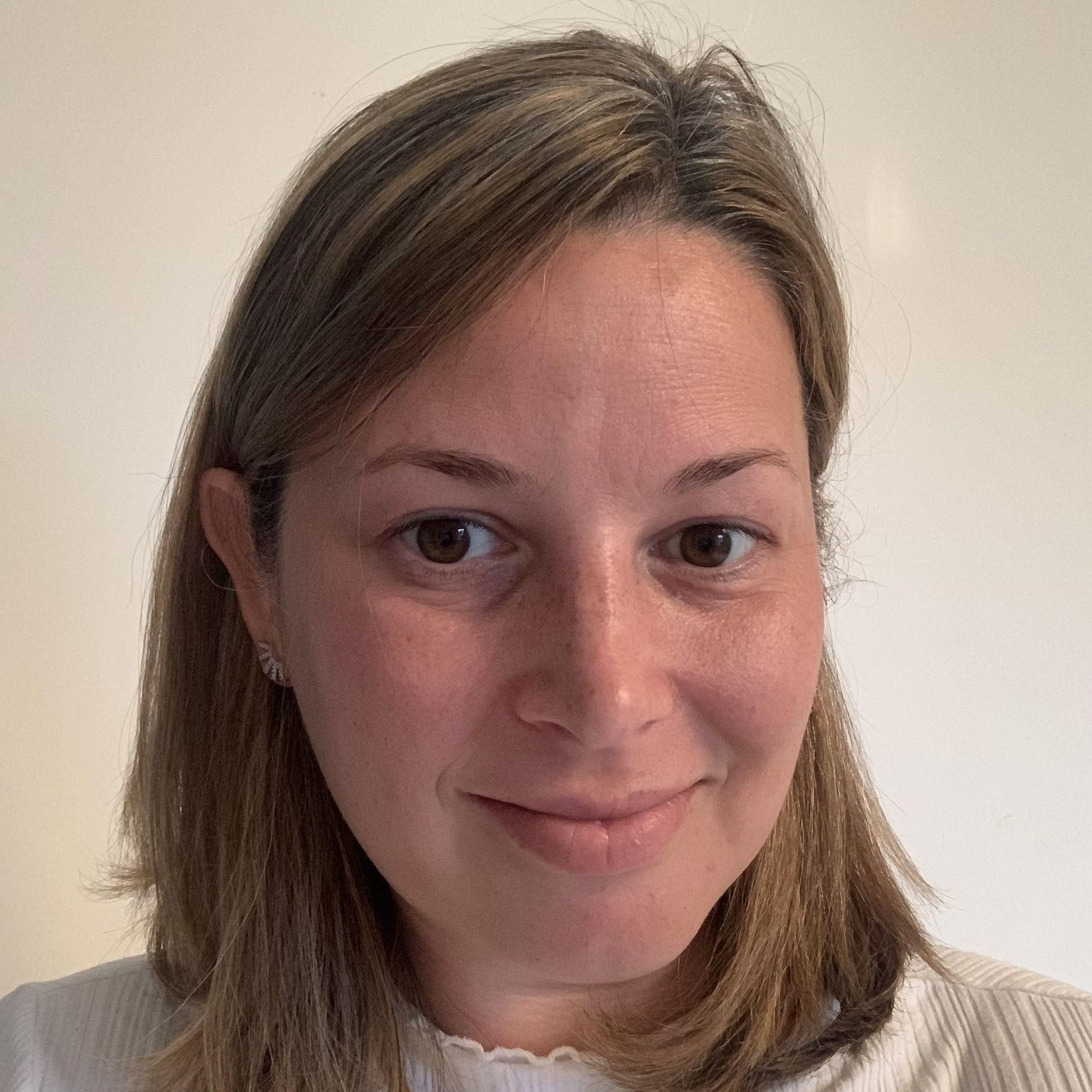
Deputy Director, Centre for the Study of Existential Risk (CSER), Cambridge University
Session: Existential risks
Jessica Bland is Deputy Director of the Centre for the Study of Existential Risk at the University of Cambridge. She has a background in science and technology policy, including working at the Dubai Future Foundation, the Royal Society and Nesta. Although she now focuses on high-impact and low probability future scenarios, Jessica has a longstanding interest in a range of futures and foresight methods, and was project lead at School of International Futures in 2020-21 working with governments and NGOs. Her research interests include responsible innovation, imaginaries and the structures of science advice to policymakers. She has a Masters in Physics and Philosophy from the University of Oxford and an MSc in Science Communication from Imperial College London.

Former Counsellor for the Strategic Foresight, General Secretariat, OECD
Session: Existential Risks
Duncan Cass-Beggs was until recently the head of Strategic Foresight at the OECD, where among other things his team launched an ongoing collaborative initiative on anticipating and managing emerging global existential risks. Prior to the OECD, Duncan worked within the Government of Canada, including as Director of Foresight at Policy Horizons Canada. Duncan is currently focusing on governance and public policy related to emerging global risks from artificial intelligence.

Program Director, Evergreen
Session: Living arrangements: What comes next?
Joyce Chau is a senior leader who has been working in the non-profit environmental sector for over 16 years. She joined Evergreen in 2020, leading national programs that support youth city builders and innovative solutions to increase the supply of housing that is affordable. Prior to that, Joyce was an executive director of an environmental charity for eight years. Joyce’s expertise lies in leading multi-partner collaboratives, community-based engagement, policy and governance, education and fundraising. She currently serves on the board of the Small Change Fund and the Ontario Land Trust Alliance.

Deputy Minister of Justice and Deputy Attorney General of Canada, Department of Justice Canada
Session: Disruptions on the horizon: Canadian perspectives
Shalene Curtis-Micallef was appointed Deputy Minister of Justice and Deputy Attorney General of Canada on February 13, 2023. She had served as Associate Deputy Minister of the Department of Justice Canada since September 1, 2021.
Over the course of her career she has held various positions at Justice Canada including the roles of Assistant Deputy Minister Tax Law Services Portfolio, Deputy Assistant Deputy Minister of the Policy Sector and Executive Director and Senior General Counsel of Health Canada Legal Services and of Agriculture and Food Inspection Legal Services. Her career at Justice Canada has touched on a variety of areas of law, with an emphasis on regulatory law and international law. Over the years she has had the opportunity to contribute to the advancement of significant legislative reforms including in the areas of cannabis legalization and regulation, tobacco control, food safety modernization and public health. She started her career with Justice in the Tax Law Services Portfolio as tax litigation counsel.
Shalene completed her legal studies at Osgoode Hall Law School and she is a member of the Law Society of Ontario. Shalene also holds a Bachelor of Business Administration degree from the University of Ottawa.
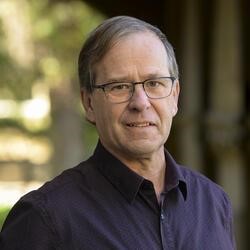
Co-Director, Stanford Existential Risks Initiative; Director, Program in Science, Technology & Society, Stanford University
Session: Existential risks
Paul N. Edwards is Director of the Program on Science, Technology & Society at Stanford University, Co-Director of the Stanford Existential Risks Initiative, and Professor of Information and History (Emeritus) at the University of Michigan. Edwards is the author of A Vast Machine: Computer Models, Climate Data, and the Politics of Global Warming (MIT Press, 2010) and The Closed World: Computers and the Politics of Discourse in Cold War America (MIT Press, 1996), and co-editor of Changing the Atmosphere: Expert Knowledge and Environmental Governance (MIT Press, 2001), as well as numerous articles. With Janet Vertesi, he co-edits the Infrastructures book series for MIT Press. Edwards recently served as a Lead Author for the Sixth Assessment Report of the Intergovernmental Panel on Climate Change (2021). He is a Guggenheim Fellow, a Carnegie Scholar, and an elected AAAS Fellow.

Director and Professor, Vancouver School of Economics, University of British Columbia
Session: Geotechnomics: Canadian perspectives
Patrick Francois has been an economics professor for over 25 years, working in Canadian, European and Australian Universities. His main area of research is development economics, with a focus on political economy. His research has focused on political institutions in weakly institutionalized settings, spanning the most micro (village level) to the macro (national level) governments. Recent and ongoing projects include explorations of the process of promotions within the Chinese Communist Party, the failed democratization and autocratic reversion in Myanmar, and the means by which reserving political office for members of disadvantaged minorities can increase governance quality in villages. Professor Francois has been a Co-editor of the Journal of Development Economics since 2011, is an Associate Editor of the American Economic Review, and is currently the Director of the Vancouver School of Economics at the University of British Columbia.

Founder & CEO, Tiny Ventures
Session: A divided society: Fractures, wedges, fault lines and the next crisis
Sue Gardner is a digital media pioneer whose work is motivated by the desire to ensure that everybody in the world has access to the information they want and need. She is the former head of CBC.ca, after which she worked in the United States for 15 years, where she ran the Wikimedia Foundation, the nonprofit that operates Wikipedia. Today she is an advisor, consultant, and board member for startups and nonprofits, mostly in the realms of journalism, technology, and digital rights.
Sue has an honorary doctorate of laws from Ryerson University, was named a Technology Pioneer by the World Economic Forum, was the inaugural recipient of the Knight Foundation's Innovation Award, has been ranked by Forbes magazine as the world's 70th most powerful woman, was named Cultural Humanist of the Year by the Harvard Humanist Association, and is a proud recipient of the Nyan Cat Medal of Internet Awesomeness for Defending Internet Freedom.
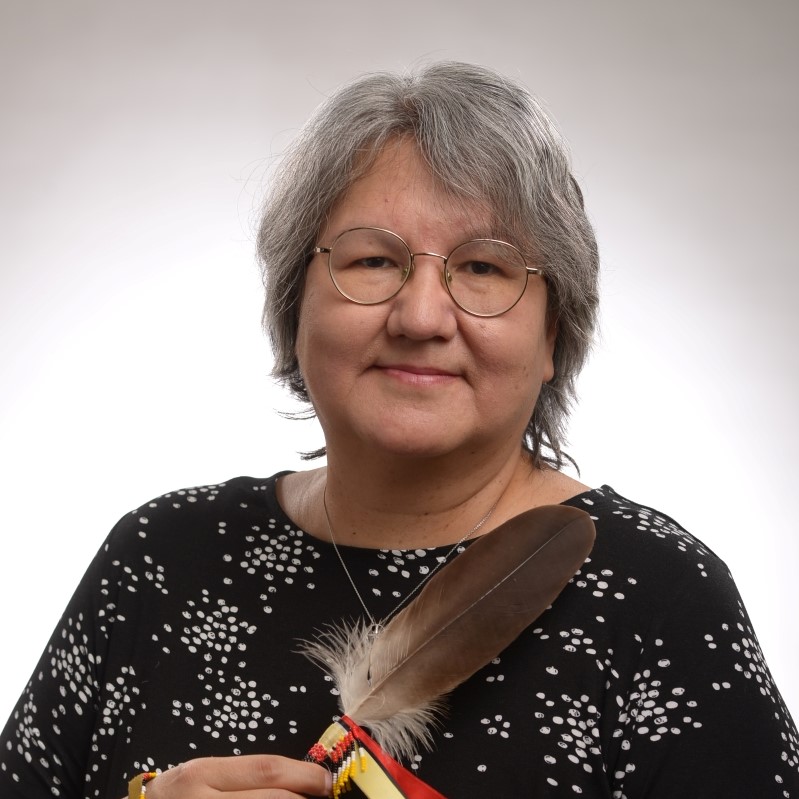
Indigenous system thinker, complexity geek, PhD candidate in Social & Ecological Sustainability, School of Environment, Resources & Sustainability (SERS), Faculty of Environment, University of Waterloo
Session: The world we desire: Systemic transformation
Melanie Goodchild, moose clan, is an Anishinaabekwe (Ojibway woman) from Biigtigong Nishnaabeg First Nation and Ketegaunseebee (Garden River) First Nation. She is a systems thinking and complexity scholar who offers a uniquely Anishinaabeg approach to making sense of society's most entrenched problems. She is a PhD candidate in Social & Ecological Sustainability in the School of Environment, Resources & Sustainability (SERS) in the Faculty of Environment at the University of Waterloo.
Melanie is a Research Fellow with the Waterloo Institute for Social Innovation & Resilience (WISIR) and a faculty member of the u-school for Transformation by the Presencing Institute, the Academy for Systems Change and the Wolf Willow Institute for Systems Learning. She is an International Women's Forum (IWF) Leadership Fellows Program alumni (2015-16), a program sponsored by Harvard Business School and INSEAD.
She lives with her family in Baawaating (place of the rapids), in the traditional territory of the Three Fires Confederacy.

Professor, Faculty of Law & Director Academic Research for the National Centre for Truth & Reconciliation, University of Manitoba
Session: A divided society: Fractures, wedges, fault lines and the next crisis
As a proud Metis woman, University of Manitoba law Professor Brenda Gunn combines academic research with activism pushing for greater recognition of Indigenous peoples’ inherent rights as determined by their own legal traditions. Brenda earned a JD at the University of Toronto and an LLM in Indigenous Peoples Law & Policy at the University of Arizona. She has also worked with Manitoba First Nations on Aboriginal and treaty rights issues, and developed a handbook that is one of the main resources in Canada on understanding the UN Declaration on the Rights of Indigenous Peoples.
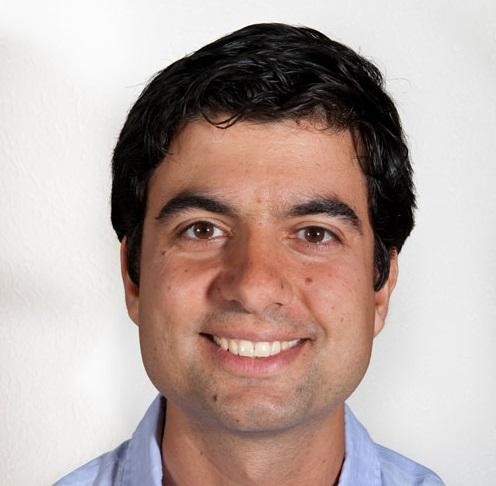
Founder, Turquoise Technology Solutions
Session: The future of space
Ozgur Gurtuna is the founder of Turquoise Technology Solutions Inc., a Montréal-based company that provides technology management services. He is passionate about space exploration and the peaceful uses of space technology. For the past 20 years, he has assisted government agencies in their strategic technology development planning. He has a PhD in applied mathematics from the joint program administered by Concordia, HEC, McGill and UQAM. He is the author of Fundamentals of Space Business and Economics.

Futurecasting Practice Lead, Manulife, and Co-founder, Resonance Innovation
Session: Geotechnomics: Canadian perspectives
Deborah Hayek is an innovator and a futurist who loves meeting new people and learning new things.
Her expertise in corporate innovation, strategic foresight and emerging technology stem from a career dedicated to bringing new business models and ideas to life. Whether in the role of intrapreneur, entrepreneur, academic or mentor, Deborah loves the challenge of analyzing complex factors and future uncertainties to find creative opportunities for sustainable growth.
Deborah is the Futurecasting Practice Lead in Manulife's Global Innovation Lab. She introduced the practice of strategic foresight to the organization, and founded the growing community of futurists through book clubs, art galleries and workshops. Her role includes leading strategic research and workshops on external social, economic and technological factors to uncover trends, uncertainties, opportunities and risks for the business.
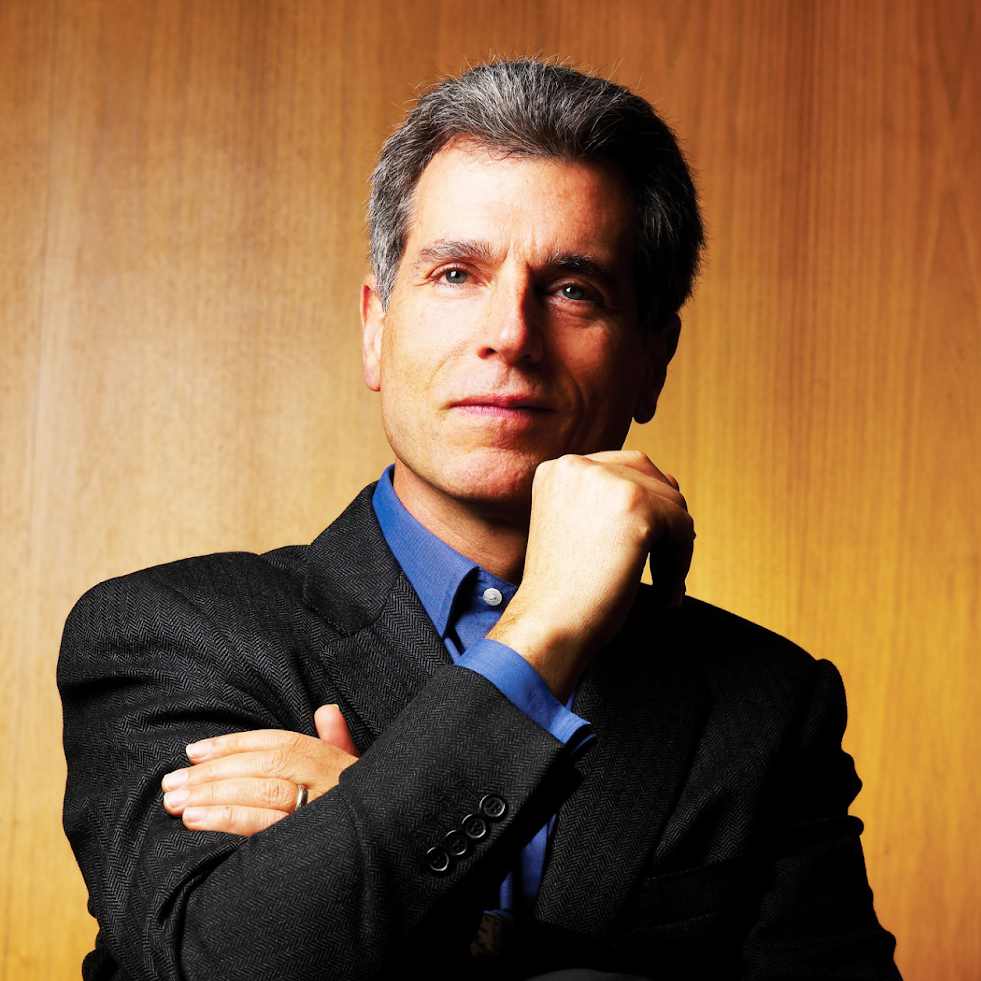
Executive Director, Cascade Institute, Royal Roads University
Session: Fireside chat with Thomas Homer-Dixon
Thomas Homer-Dixon is founder and Executive Director of the Cascade Institute at Royal Roads University in Victoria, British Columbia. Born in Victoria, British Columbia, he received his BA in political science from Carleton University and his PhD from the Massachusetts Institute of Technology in international relations, defense policy, and conflict theory. For nearly two decades, he directed the Centre for Peace and Conflict Studies at the University of Toronto; in 2008, he joined the faculty at the University of Waterloo, where he founded the Waterloo Institute for Complexity and Innovation. He retired from his faculty position as a University Research Chair in 2021.
Considered among the world’s leading experts on the intricate links between nature, technology, and society, his current research focuses on threats to global security in the twenty-first century, including economic instability, climate change, and nationalist authoritarianism, and on how people, organizations, and societies can better solve complex problems. He has provided briefings to the Privy Council Office, the Department of Foreign Affairs, and the Department of Defence in Canada; to the Foreign Office in the United Kingdom; and to the White House, the Central Intelligence Agency, the National Security Council, and the State Department in the United States.
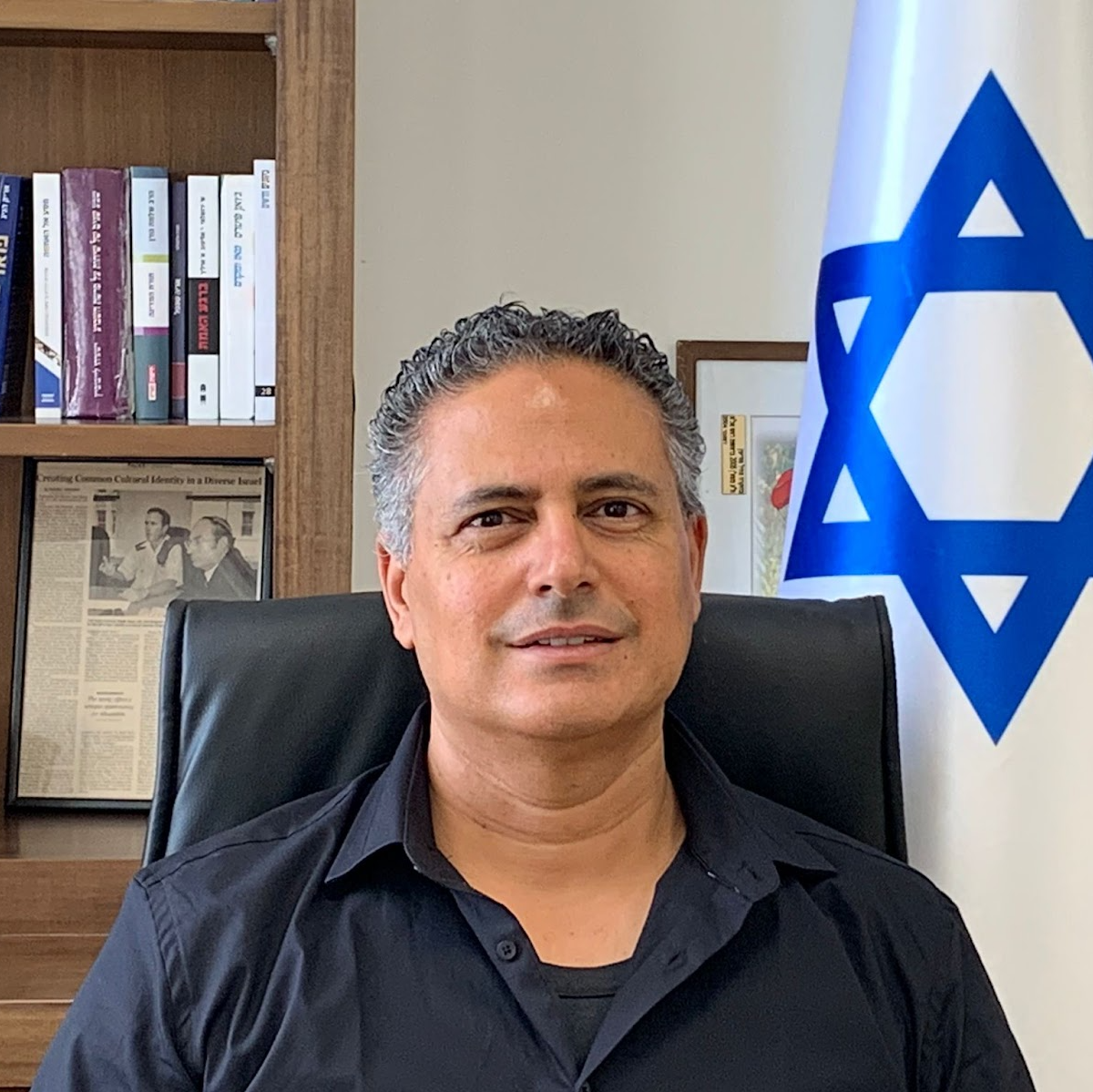
Head of the National Intelligence Directorate, Ministry of Intelligence, Israel
Session: Foresight from around the world: Public sector perspectives
Dr. Victor Israel works as the Head of the National Intelligence Directorate in the Ministry of Intelligence of the State of Israel since July 2022.
He served in the IDF Military Intelligence Corps during the years 1989-2014, in a variety of positions that included production of strategic intelligence for senior decision makers. After 25 years of service he was discharged with the rank of Lieutenant Colonel.
In the years 2014 – 2017, Dr. Israel worked in the business intelligence department of Rafael – Advanced Defense Systems. In June 2017, he joined the Ministry of Intelligence as the Head of the Research Division, and during the following years took a leading part in the establishment of Israel's Horizon Scanning mechanism.
Dr. Israel holds a PhD in Political Science from Bar-Ilan University. His dissertation’s topic is "The Development of Ethno-National Actors and their Influence in the International Arena."
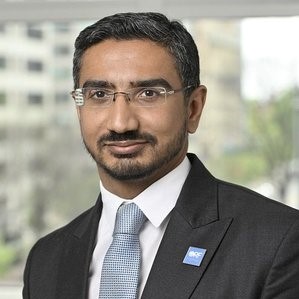
Executive Director, Observer Research Foundation America
Session: Geotechnomics: The strategic interplay of geopolitics, technology, and economics
Dhruva Jaishankar is Executive Director of the Observer Research Foundation America, which he helped establish in 2020. He is a Non-Resident Fellow with the Lowy Institute in Australia and writes a regular column for the Hindustan Times. His research — on India’s relations with the United States, Japan, Australia, Southeast Asia, and Europe; defense and security policy; and globalization, democracy, and technology — has been published in several books, policy reports, and publications including Foreign Affairs, Foreign Policy, and Survival.
Jaishankar was a Fellow in Foreign Policy Studies at Brookings India and the Brookings Institution in Washington DC from 2016-2019. From 2012-2016, he was a Transatlantic Fellow with the German Marshall Fund in Washington DC, managing the India Trilateral Forum. Dhruva also worked as a research assistant at the Brookings Institution and as a news reporter for CNN-IBN television in New Delhi.
Jaishankar was a Visiting Fellow with the S. Rajaratnam School of International Studies at Nanyang Technological University in Singapore. He has been a David Rockefeller Fellow, an IISS-SAIS Merrill Center Young Strategist, and a Brent Scowcroft Award Fellow. He holds a BA in history and classics from Macalester College, and an MA in security studies from Georgetown University.

Head of unit in the Directorate for Science, Technology and Innovation (STI) Branch, Organisation for Economic Co-operation and Development (OECD)
Session: The future of space
Claire Jolly is the Head of Unit at the Directorate for Science, Technology and Innovation (STI) within the Organisation for Economic Co-operation and Development (OECD), based in Paris. She is in charge of the OECD research and analysis on the economics and innovation dimensions of two important frontier domains: the ocean and the space environment. Many economic activities, as well as much science and innovation, are linked to the exploration and sustainable uses of the ocean and of the space environment. Both will be critical for our future, and we must ensure their long-term sustainability.
Claire Jolly has over twenty-five years of experience in business and policy analysis, supporting decision making and strategic planning in public and private organizations in Europe and North America. She has authored and contributed to over fifty publications (books, reports, articles) focussing on the evolution and economic impacts of science- and technology-intensive sectors. Her background is in international economics (Univ. Versailles, Cornell University), engineering with a special interest in the space sector (ENSTA, Paris; ISU in Strasbourg). She is also alumna of the French Institute for Higher National Defence Studies in Paris (IHEDN) and of the Singularity University in Santa Clara, U.S..
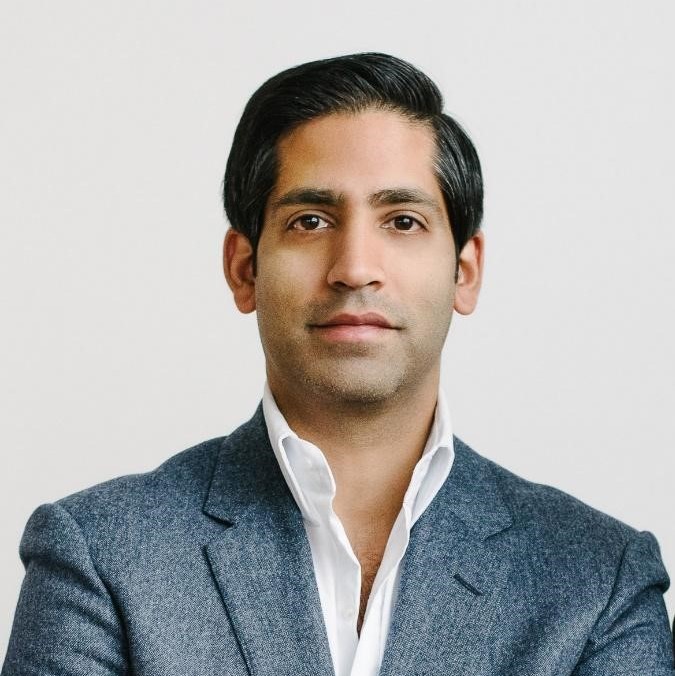
Founder and CEO, Node
Session: Living arrangements: What comes next?
Anil Khera is Founder and CEO of Node, one of the largest global asset managers and operators of next generation rental communities in creative capital cities around the world. Node’s mission is to create beautiful urban spaces with genuine community in a cost effective and convenient way. Node residences are currently located in key gateway cities throughout North America and Europe, including London, Dublin, Madrid, Barcelona, New York and Los Angeles with plans to expand to Toronto, Paris and Amsterdam. Node partners with institutional investors and developers to create and manage 100-1,000 bed micro-living, co-living and furnished apartment rental buildings.
Anil has worked over 20 years in real estate, including 11 years at Blackstone. Anil graduated with an HBA from the Ivey School of Business at Western University and a BA from the University of Waterloo in Canada. He has been listed in Property Week's Hot 100 and Top 40 Under 40. Anil is the Chair of the GRI Global Co-Living Committee and is a member of ULI and the UKAA.

Head, Centre for Strategic Futures, Strategy Group, Prime Minister’s Office, Singapore
Session: Foresight from around the world: Public sector perspectives
Jeanette joined the civil service in 2005, starting her career at the Defence Policy Office, MINDEF, where she worked on Singapore’s defence relations with international partners. In 2009, she joined the Strategic Policy Office, where she became one of the founding members of the Centre for Strategic Futures (CSF). During the early years of the CSF, Jeanette was involved in expanding the centre’s network of exciting minds and interesting personalities, growing futures capabilities across the public service, as well as organising and curating the first in an ongoing series of Foresight Conferences (now an integral part of Singapore’s Foresight Week). In 2018, she returned to the Ministry of Defence to help build up foresight capability there. During her stint, Jeanette drove research into emerging geopolitical trends and opportunities, and developed a research agenda and process for the new team.
Jeanette is a political scientist and economist by training, having graduated with honours from the University of Chicago in 2005. She continues to stay current in the field as an alumna of the Munich Young Leaders, International Institute of Strategic Studies’ Southeast Asian Young Leaders Program and the Young Strategists Forum. She is married with two young children. In whatever spare time the children leave her with, she nurses a dangerous addiction to caffeine and the written word.

Deputy Director, Space Observatory, Strategy Directorate, National Centre for Space Studies
Session: The future of space
Murielle Lafaye is the Deputy Director of the Space Observatory in the Strategy Department of the CNES, where she began her career in 1990. She has held various positions, including research engineer in antennas and head of the precise orbit determination system, DORIS. Lafaye contributed to the development of the oceanography altimetry industry and the monitoring of sea level rise and phenomena such as El Nino.
In the early 2000s, Lafaye joined the development of spatial applications in response to societal issues. She was responsible for the development of space applications in environmental risk management, natural disasters, and health, where she developed tele-epidemiology and contributed to the creation of "mosquito weather” maps to prevent epidemics of dengue fever, malaria, and Rift Valley Fever.
In 2020, Lafaye created the Space Economy Observatory to build a shared vision of the context, challenges, markets, actors, and ongoing and future developments in the space ecosystem. She works as an expert in space economics and foresight for various international organizations, including the OECD and ESA, as well as several schools and universities.

Co-Chair, National Indigenous Housing Network
Session: Living arrangements: What comes next?
Katłįà Lafferty is a member of the Yellowknives Dene First Nation from Somba K’e (Yellowknife), Northwest Territories. She is currently an uninvited guest on the occupied and unceded lands of the Coast Salish peoples in lək̓ʷəŋən territory where she is in her fourth year of Common Law and Indigenous Legal Orders with the University of Victoria. She is the Co-Chair of the National Indigenous Housing Network, a movement of First Nations, Inuit, and Métis Peoples dedicated to improving the living situations of Indigenous women and girls, Two-Spirit, and gender-diverse persons across Turtle Island and ending incidents of becoming unsheltered. She is also the author of the fictional novel “This House is Not a Home”.

Director, Strategic Futures Group, National Intelligence Council
Session: Foresight from around the world: Public sector perspectives
Maria Langan-Riekhof is the Director of the Strategic Futures Group at the National Intelligence Council, leading the Intelligence Community’s assessment of global dynamics and charged with producing the quadrennial Global Trends product. She has spent more than 31 years in the intelligence community as both a senior analyst and manager, serving at the CIA and on the NIC. She brings a background in Middle East studies and has spent more than half her career analyzing regional dynamics.
Her leadership roles include: Chief of the CIA’s Red Cell, founder and director of the CIA’s Strategic Insight Group, and research director for the Middle East. She was one of the DNI’s Exceptional Analysts in 2008-09 and the Agency’s fellow at the Brookings Institution in 2016-17. She is a member of the Senior Analytic Service and the Senior Intelligence Service and holds degrees from the University of Chicago and the University of Denver.

Anti-racism and inclusion consultant
Session: Future lives: Basic needs at risk
Destine Lord (she/her) is an anti-racism and inclusion consultant, living on the unceded territory of the Algonquin people. During the pandemic, she served two years on the Board of Directors of the Ottawa Food Bank and has spent the last 10 years working in both the private and public sectors, facilitating workshops and training sessions related to anti-racism, risk management, change management, and reconciliation. Destine worked in strategic planning, program evaluation and policy development for the Canadian Government in what was then known as the Department of Indigenous and Northern Affairs. She is certified in change management and has an honors degree in Mass Communication from Carleton University and a master’s degree in Journalism from Bond University. She is a news junkie and very interested in how the media can shape our perceptions about the world and people around us.
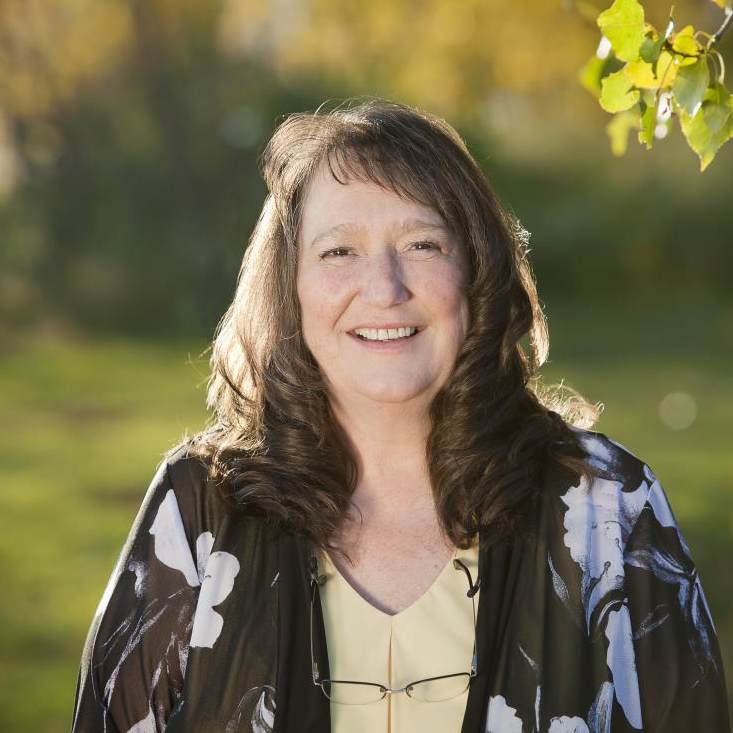
Anishinaabe Algonquin Knowledge Keeper
Session: Opening, Closing
Monique Manatch is a member of the Algonquins of Barriere Lake and a Knowledge Keeper. Currently, Monique is a student at Carleton University taking a doctorate program in Anthropology focusing on the impact, use and creation of digital arts in the Indigenous community. Her Master’s Degree is in Indigenous and Canadian Studies with a specialty in Digital Humanities. Monique also holds a post- graduate diploma in Indigenous Policy and Administration.
In 2004, Monique became founder and Executive Director of Indigenous Culture and Media Innovations (www.icmi.ca). ICMI is dedicated to the skills development of Indigenous communities through the production media and arts. Monique has facilitated Indigenous artists and community members throughout Ontario, Quebec and Newfoundland. Currently, Monique is working on projects which outreach to the Indigenous community to discuss artistic needs and begin developing a national network.
Over the past 20 years Monique has produced several video documentaries about Indigenous issues. Monique also facilitated the production of videos and community radio programming with Kitigan Zibi Anishnabeg, Mitchikanibikok Inik (Algonquins of Barriere Lake), Muskegowuk Cree and the Indigenous community in Ottawa.
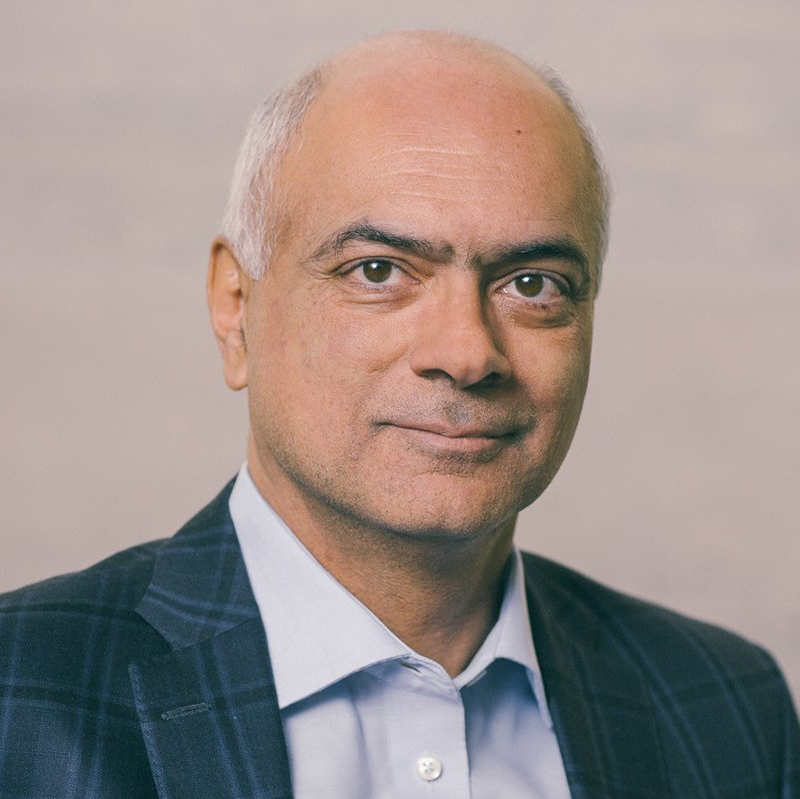
Distinguished Fellow, Centre for International Governance Innovation
Session: Geotechnomics: Canadian perspectives
Rohinton P. Medhora is a distinguished fellow and former president of CIGI (2012–2022). He also served on CIGI’s former International Board of Governors from 2009 to 2014. Previously, he was vice president of programs at Canada’s International Development Research Centre. His fields of expertise are monetary and trade policy, international economic relations and development economics.
Rohinton sits on The Lancet and Financial Times Commission on Governing Health Futures 2030, as well as the Commission on Global Economic Transformation, co-chaired by Nobel economics laureates Michael Spence and Joseph Stiglitz. He is chair of the board of the Institute for New Economic Thinking, vice-chair at the McLuhan Foundation and is on the advisory boards of the WTO Chairs Programme, UNU-MERIT and Global Health Centre. From 2021 to 2022, Rohinton chaired the Ontario Workplace Recovery Advisory Committee.
Rohinton received his doctorate in economics in 1988 from the University of Toronto, where he subsequently taught. In addition to his PhD, Rohinton earned his BA and MA at the University of Toronto, where he majored in economics.

Assistant Professor of Political Science & Policy, University of Toronto
Session: A divided society: Fractures, wedges, fault lines and the next crisis
Dr. Eric Merkley is an Assistant Professor in the Department of Political Science at the University of Toronto. His work focuses on the causes and consequences of mass polarization in Canada. He is also interested in the individual and contextual factors shaping citizen attitudes towards areas of expert consensus and behavioural compliance with public health recommendations. He was previously the Lead Survey Analyst for the Digital Democracy Project and the Media Ecosystem Observatory, interdisciplinary research teams that monitored public opinion, misinformation, and media ecosystem health during the 2019 Canadian federal election and the COVID-19 pandemic, respectively. He has published over two dozen peer-reviewed articles in outlets like the American Political Science Review, Nature Human Behaviour, the Journal of Politics, the British Journal of Political Science.

Director General, Citoyenneté jeunesse
Session: A divided society: Fractures, wedges, fault lines, and the next crisis
With a Bachelor's degree in International Studies and a specialization in political science, Elsa Mondésir-Villefort is currently the Executive Director of Youth Citizenship, an organization that promotes youth engagement throughout Quebec. She is also a member of the Quebec Higher Education Council and Vice-President of the Quebec Voluntary Action Network. In the past, Elsa was involved with the Canadian Commission for UNESCO as a member of the Expert Group against Racism in Education and the Youth Advisory Group, as well as a governor for the 1804 Fund for Student Retention. She has also specialized in working with numerous marginalized groups both domestically and internationally, focusing on human rights public education and promoting international solidarity among youth. Elsa is currently developing and delivering training, as well as providing guidance to organizations and groups of people under 35 across Canada who want to take action and bring about lasting change in their communities.

Professor of Collective Intelligence, Public Policy and Social Innovation, University College London
Session: The world we desire: Systemic transformation
Geoff Mulgan is Professor of Collective Intelligence, Public Policy and Social Innovation at University College London. Prior to that he was Chief Executive of Nesta, the UK's innovation foundation between 2011 and the end of 2019. Between 1997 and 2004 Geoff had roles in the UK government including director of the Government's Strategy Unit and the Performance and Innovation Unit, and head of policy in the Prime Minister's office. From 2004 to 2011 he was the first Chief Executive of The Young Foundation. He was the first director of the think-tank Demos; and has been a reporter on BBC TV and radio.
He has a PhD in telecommunications and has been a visiting professor at London School of Economics (LSE), University College London (UCL) and Melbourne University, a senior visiting scholar at Harvard University and President of the Innovation Design Department at the Italian University for Design (IAAD) in Turin.

Director, Policy Foresight, Canada Mortgage and Housing Corporation (CMHC)
Session: Living arrangements: What comes next?
Lindsay Neeley is a public sector leader who has spent 19 years leading strategy development, communications, program delivery, government relations and partnerships to influence and affect policy change in Canada. She has worked for and with all levels of government and built expertise in key policy areas like housing, community infrastructure, climate change, Indigenous relations and governance, finance, and economic development.
Lindsay is currently the Director of Policy Foresight at Canada Mortgage and Housing Corporation, a federal agency dedicated to helping Canadians meet their housing needs. Her interests include systems thinking, human-centred design, and exploring the integration of foresight with policy and strategy development to better understand and prepare for the opportunities and challenges that lie ahead for Canada.
Lindsay holds a Master of Public Administration from the University of Western Ontario and a Bachelor of Arts in Political Science from the University of Guelph.

Global Leader for AI Policy, Amazon Web Services
Session: Geotechnomics: The strategic interplay of geopolitics, technology, and economics
Marc-Etienne Ouimette is AWS (Amazon Web Services) global lead for AI policy. He has advised organisations and governments on R&D, scale up support, and technology governance policy, both domestically and internationally. He sits on the AI advisory board of Tortoise Media, is board chair of the MTL Centre of Expertise – Global Partnership on AI (GPAI), and was a prior deputy board member of the World Economic Forum’s Center for the Fourth Industrial Revolution. He has given numerous talks on AI and data policy, notably for the Rockefeller Foundation, the Global AI Summit, and MozFest, Mozilla’s annual gathering. Before AWS, he served as the Head of Public Policy at Element AI, a global AI product company headquartered in Montreal, Canada.
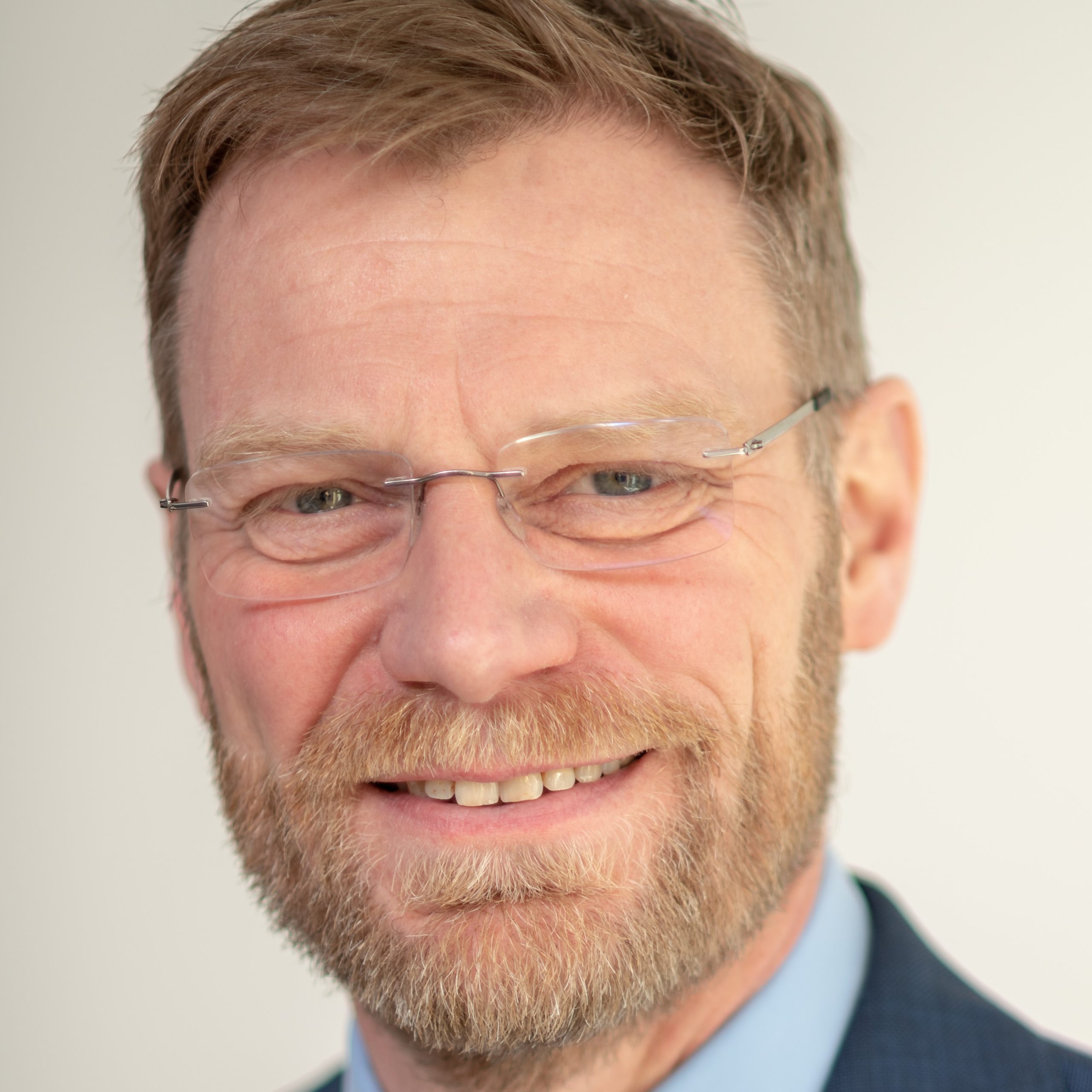
Director, Strategic Futures Group, National Intelligence Council
Session: Foresight from around the world: Public sector Perspectives
Stephen Quest is the Director-General of the Joint Research Centre (JRC) as of 1 May 2020. Prior to this, he was the Director-General of the Directorate-General for Taxation and Customs Union (TAXUD) and the Director-General for Informatics (DIGIT), driving the digital transformation of the Commission. His career spans more than 25 years in the European civil service, and has included work on the EU budget, social and environmental policy and four years as Assistant to the Secretary-General. As Director-General, Stephen is particularly focused on modernising organisational culture and promoting innovation within the Commission, both as regards the use of technology and empowering and involving staff in decision-making. He is particularly passionate about communication and the interface between policy and technology.

Senior Assistant Deputy Minister, Employment and Social Development Canada (ESDC)
Session: Closing
Elisha Ram was appointed Senior Assistant Deputy Minister (SADM) of Employment and Social Development Canada’s (ESDC) Income Security and Social Development Branch (ISSD) and Policy Horizons Canada on January 18, 2023. Elisha has been working in the Public Service of Canada for over 25 years. He joined ESDC in 2018 where he served as Associate Assistant Deputy Minister (AADM) of the Skills and Employment Branch and then as AADM of the Strategic and Service Policy Branch.
Elisha has been fortunate to have worked on a variety of challenging economic and fiscal policy files throughout his career. Particularly, he provided exceptional leadership throughout the pandemic in developing and implementing critical income support programs for Canadians, such as the Canada Emergency Response Benefit (CERB) and the Canada Recovery Benefit, as well as new flexibilities in the Employment Insurance program.
Prior to joining ESDC, Elisha worked at the Department of Finance Canada, where he provided policy advice on a wide range of issues including personal income tax policy, fiscal policy, research and innovation, natural resources and the environment, risk capital, the public debt program, and the housing finance system.
Elisha holds a Masters’ degree in economics from Western University. Outside of his professional life, Elisha has a deep interest in housing issues and has worked with local not-for-profit organizations to help increase access to affordable housing in the Ottawa area.
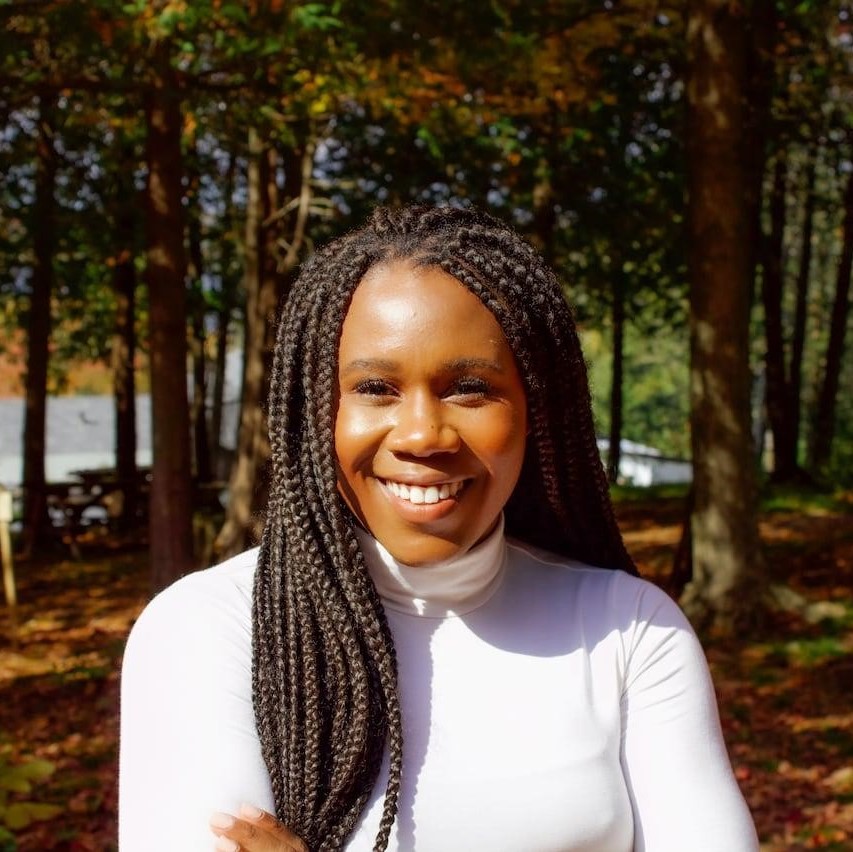
Federal and municipal food policy strategist, and food justice advocate, Food Secure Canada
Session: Future lives: Basic needs at risk
Melana Roberts is a federal and municipal food policy strategist and former Chair of FoodSecure Canada, a pan-Canadian alliance working to build more equitable, just, and sustainable food and agricultural systems through federal policy, advocacy, and capacity-building within the food movement. Working from coast to coast, Melana’s work bridges social justice, equity, politics, and policy to democratize governance, access, and power in food and agricultural policy. She is currently a senior policy staff at the City of Toronto’s Confronting Anti-Black Racism Unit, in the social policy division. Founder and principal Consultant of MR Consulting, she has held roles as Manager of the Power Lab, an equitable development leadership lab for fair economies, a political staffer at Toronto City Hall, and has served as Canada’s United Nations Delegate for the Commission on Population and Development, addressing global emergency food responses in municipal and federal contexts during COVID-19. Named a 2020 Action Canada Fellow, she’s conducted research on the future of work in Canadian agriculture, and is appointed to Canada’s first Food Policy Advisory Council.
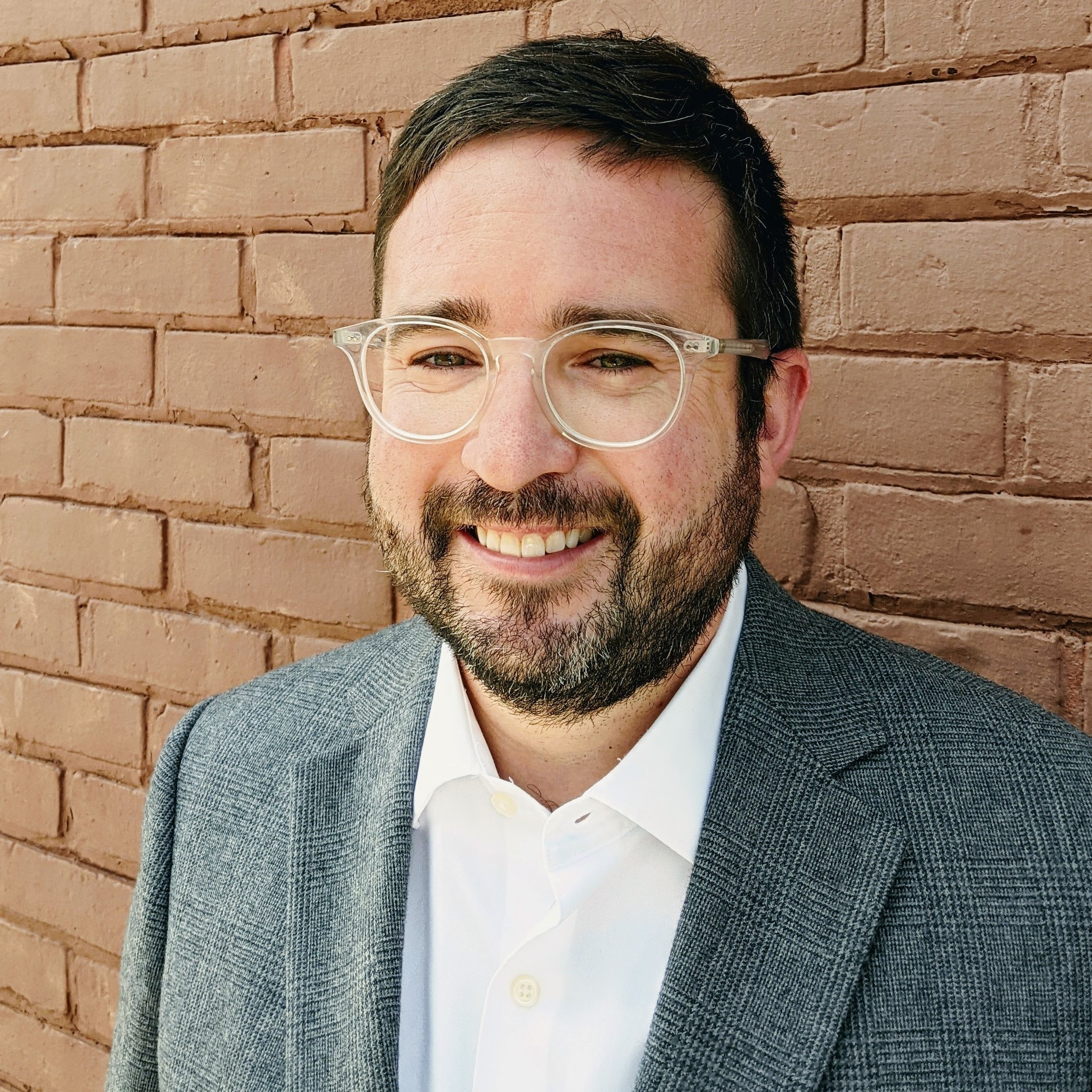
Director, Foresight Research, Policy Horizons Canada
Session: Future lives: Basic needs at risk, Fireside chat with Thomas Homer-Dixon
Simon Robertson is an acting Director at Policy Horizons Canada. He previously led the organization's Social Foresight team, where he led work on topics including the Future of Sense Making, Social Connection, and the Future Lives project. Prior to joining the public service, he was a lawyer at a major Canadian law firm, and a Senior Policy Advisor in the Prime Minister's Office and Ministers' Offices. A Francophone from Vancouver, Simon also holds a master’s degree in international relations from the University of Cambridge.
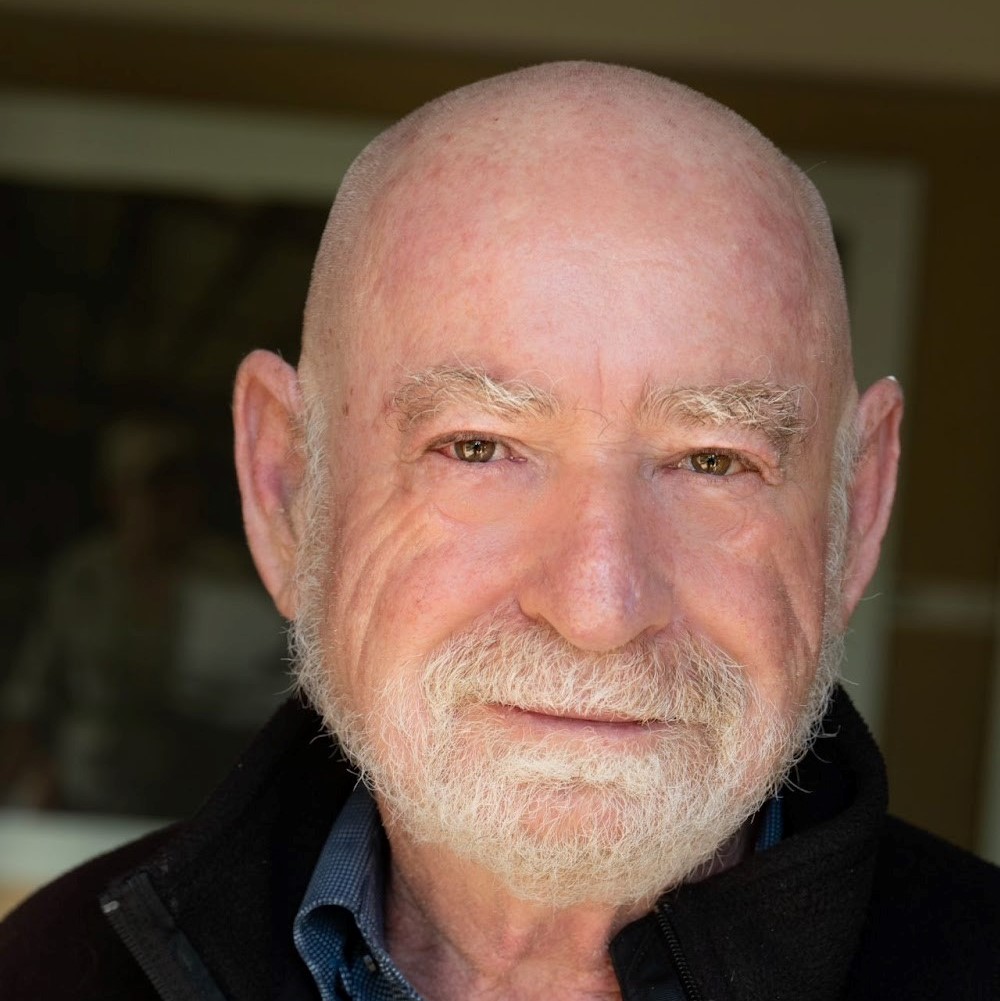
Senior Vice President of Strategic Planning, Salesforce
Session: Keynote by Peter Schwartz
Peter Schwartz is an internationally renowned futurist and business strategist, specializing in scenario planning and working with corporations, governments, and institutions to create alternative perspectives of the future and develop robust strategies for a changing and uncertain world. As Senior Vice President of Strategic Planning for Salesforce, he manages the organization’s ongoing strategic conversation. Peter was co-founder and chairman of Global Business Network. He is the author of several works. His first book, The Art of the Long View, is considered a seminal publication on scenario planning. Peter has also served as a script consultant on the films "The Minority Report," "Deep Impact," "Sneakers," and "War Games." He received a B.S. in aeronautical engineering and astronautics from Rensselaer Polytechnic Institute in New York.
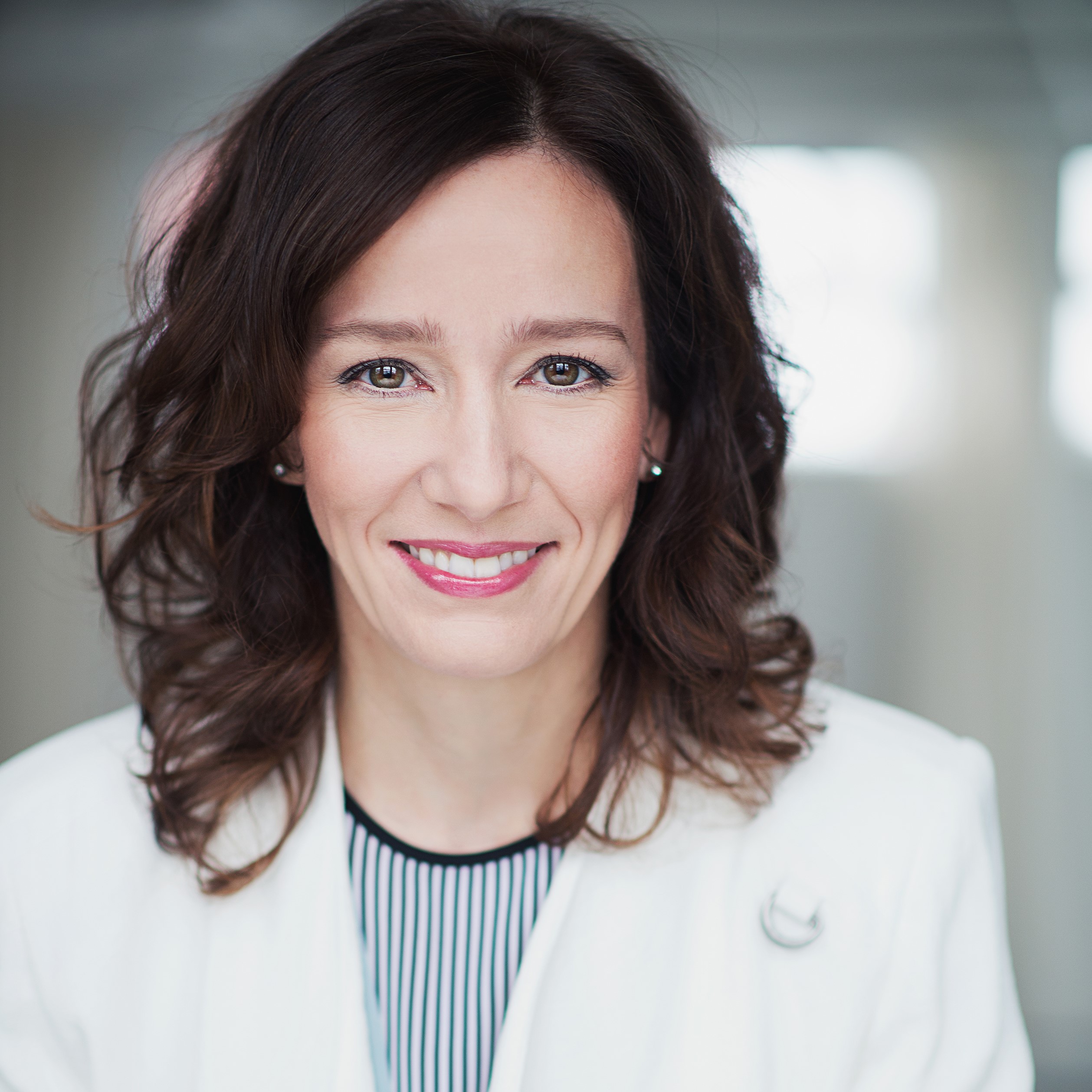
Executive Director, Space Infrastructure, Space Utilization, Canadian Space Agency
Session: The future of space
For over 25 years, Isabelle Tremblay has been involved in the field of space exploration. She is responsible for the development and operation of Canada's space infrastructure, which includes telecommunications and satellite positioning systems, Earth observation, space situational awareness and in-orbit satellite maintenance. Essential to our daily lives, this infrastructure allows us to contribute to the protection of the environment, monitor and preserve our natural resources, support relief efforts in the event of major disasters, and ensure the safety of the space environment.
Previously, Ms. Tremblay held the positions of research and development engineer in the field of space robotics, and senior engineer and technical lead for Canadian contributions to NASA's Phoenix Mars Lander and the James Webb Space Telescope. She led Canada's Human Spaceflight Program, which includes the Canadian Astronaut Corps, the conduct of scientific studies on the International Space Station with a focus on health research, and the development of future contributions to the autonomous delivery of healthcare on deep space human exploration missions (moon and Mars).
Isabelle Tremblay holds a Bachelor's degree in Mechanical Engineering and a Master's degree in Aerospace Engineering from Polytechnique Montreal with a specialization in space technologies.

Deputy Minister, Employment and Social Development Canada
Session: Opening
Jean-François Tremblay joined ESDC as Deputy Minister in January 2022.
Prior to this appointment, Mr. Tremblay served as the Deputy Minister of Natural Resources Canada from 2020 to 2022, the Deputy Minister of Indigenous Services from 2017 to 2020, the Deputy Minister for Infrastructure and Communities from 2016 to 2017 and the Deputy Minister of Transport, Infrastructure and Communities (TIC) from 2015 to 2016.
Before joining the TIC portfolio, he was Deputy Secretary to the Cabinet Operations, Privy Council Office, since April 2013.
Mr. Tremblay spent time at Aboriginal Affairs and Northern Development Canada, where he held the positions of Senior Assistant Deputy Minister, Treaties and Aboriginal Government (2012 to 2013) and Senior Assistant Deputy Minister, Policy and Strategic Direction (2010 to 2012). He also worked with the Privy Council Office, serving as Assistant Secretary to the Cabinet, Priorities and Planning (2007 to 2010) and Assistant Deputy Minister in Intergovernmental Operations (2006 and 2007).
Mr. Tremblay joined the federal public service in 2000 as a policy analyst with the Privy Council Office. He holds a Ph.D. in Political Science from Université Laval.

Founder & CEO, Concordia
Session: Existential risks
Brian Tse is the Founder and CEO at Concordia, a Beijing-based startup that aims to ensure that artificial intelligence is developed safely and for the common good. He is also a Policy Affiliate at the Centre for the Governance of AI and former Senior Advisor to the Partnership on AI. Brian has advised some of the world’s leading AI firms and think tanks on AI safety and governance, and co-edited the book Global Perspective on AI Governance《全球视野下的人工智能治理》 published by Tongji University Press. Brian has been invited to speak at Stanford, Oxford, Tsinghua, and Peking University on global risks and foresight.
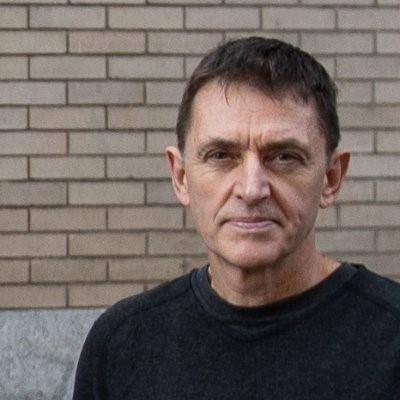
Public health and Infectious Diseases physician; Founder, MySafe Society
Session: Disruptions on the horizon: Canadian perspectives
Dr. Mark Tyndall is among Canada’s leading experts on harm reduction, public health, and the transmission of infectious diseases. He is a Harvard-trained epidemiologist and infectious diseases specialist with a clinical focus on HIV, Hepatitis C, and infections related to injection drug use. He has numerous career awards and has authored over 250 peer-reviewed academic papers. Dr. Tyndall is a professor at the School of Population and Health at UBC, and formerly the Director of the British Columbia Centre for Disease Control (BCCDC) and the Deputy Provincial Health Officer for British Columbia. Dr. Tyndall is the Founder of the MySafe Society.
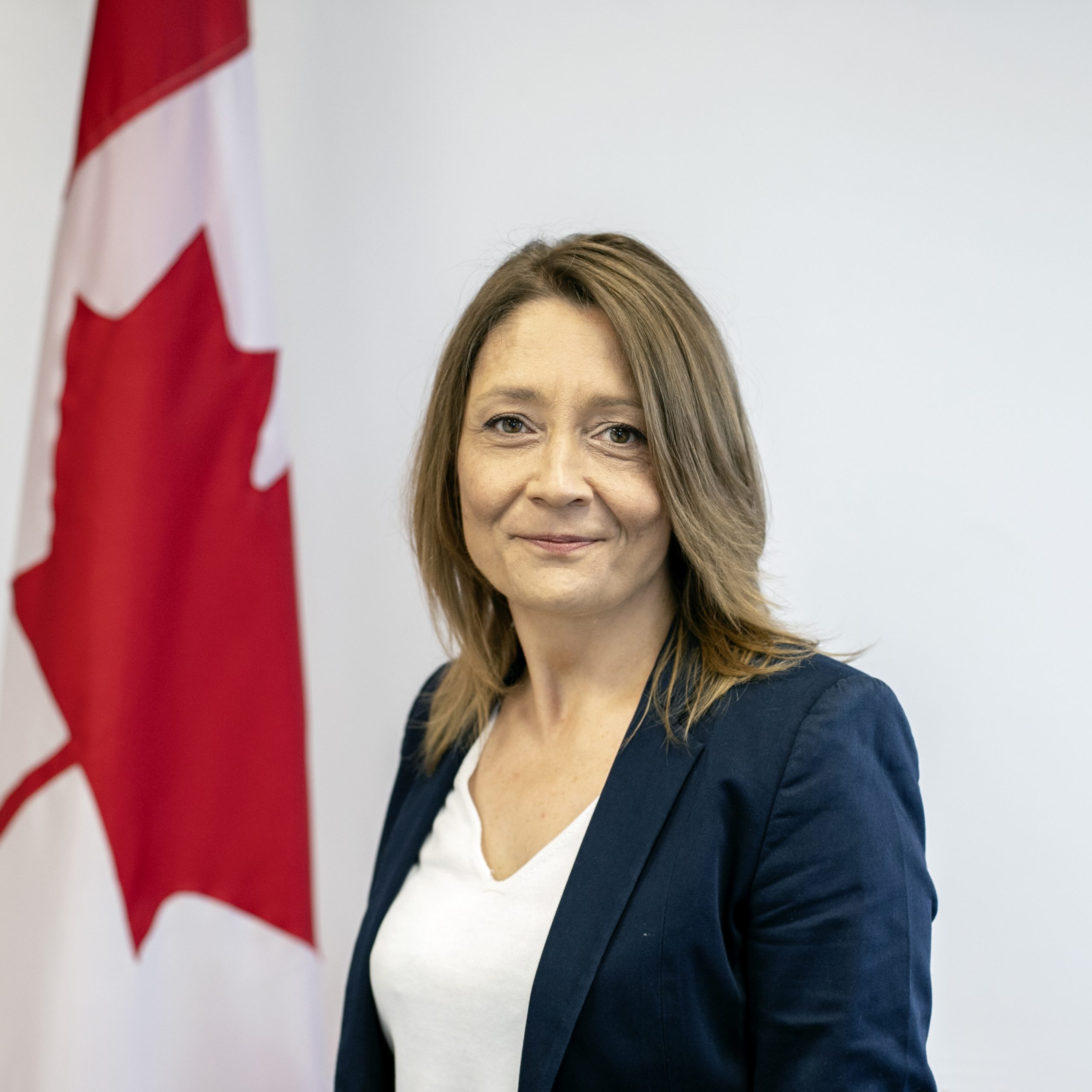
Director General, Policy Horizons Canada
Session: Opening, Foresight from around the world: Public sector perspectives, Geotechnomics: The strategic interplay of geopolitics, technology, and economics, Closing
Kristel is the Director General at Policy Horizons Canada, Government of Canada. She is former Head of Strategic Foresight at the World Economic Forum. Kristel holds 3 Masters including an MBA from the Yale School of Management. She is a Fulbright Scholar and a Rotary Foundation Ambassadorial Scholar.

Journalist, Chairperson of the Canada Council for the Arts
Session: Disruptions on the horizon: Canadian perspectives
Jesse Wente is a husband and father, as well as an award-winning writer and speaker. Born and raised in Toronto, his family comes from Chicago and Genaabaajing Anishinaabek and he is an off-reserve member of the Serpent River First Nation. Jesse is best known for more than two decades spent as a columnist for CBC Radio’s Metro Morning. Jesse spent a decade with the Toronto International Film Festival as a curator, including leading the film programming at the Tiff Bell Lightbox. In 2018, Jesse was named the founding director of the Indigenous Screen Office and in summer 2020 he was appointed Chair of the Canada Council for the Arts. Jesse received the Arbor Award from the University of Toronto in 2021 for his volunteer contributions and was recently appointed a Senior Fellow of Massey College. His first book “Unreconciled: Family, Truth and Indigenous Resistance” is a national bestseller and was picked as one of best books of 2021 by Chapters-Indigo, Apple Books and The Globe and Mail. Last year, Jesse won the Kobo Emerging Writers Prize in Non-Fiction and most recently, he has been named the Communicator of the Year for 2022 by the International Association of Business Communicators.
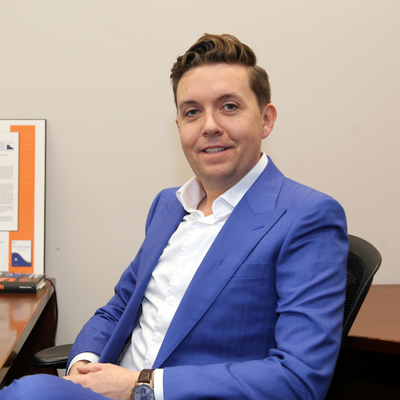
CEO, CHAR Technologies
Session: Disruptions on the horizon: Canadian perspectives
Andrew White is the co-founder of CHAR Technologies. He has a MASc degree in Chemical Engineering from the University of Toronto and, after a eureka moment in the lab, launched CHAR Technologies. He also has a Master’s Degree in Business, Entrepreneurship and Technology (MBET) from the University of Waterloo. Additionally, Andrew has won the IBK Capital Ivey Business Plan Competition. He’s been named the OBBA’s Young Entrepreneur of the Year, and led CHAR to be named the CIX Top 20 Most Innovative Public Companies. Andrew leads by example – providing clients and staff alike with clear guidance and actionable insights that help make our world a better place.

Economist and Atkinson Fellow on the Future of Workers
Session: Disruptions on the horizon: Canadian perspectives
Armine Yalnizyan is a leading voice on Canada’s economic scene. She is the Atkinson Fellow on the Future of Workers and writes a bi-weekly business column for the Toronto Star. She served as a senior economic policy advisor to the federal Deputy Minister of Employment and Social Development Canada in 2018 and 2019, and has been a member of a high-level task group on women in the economy convened by the federal Ministers of Finance and Middle Class Prosperity during the pandemic. Armine helped shape and advance the Canadian Centre for Policy Alternatives’ Inequality Project from 2006 to 2016, provided weekly business commentary for CBC from 2011 to 2018, and served as Vice President and President of the Canadian Association for Business Economics from 2013-2019.

Adjunct Professor of Economics, London Business School, and Fellow of Economics, Oxford University
Session: Geotechnomics: The strategic interplay of geopolitics, technology, and economics
Dr. Linda Yueh CBE is Fellow in Economics at St Edmund Hall, Oxford University, Adjunct Professor of Economics at London Business School, and an Associate Fellow (U.S. & the Americas Programme) at Chatham House.
Dr. Yueh is Advisor to the UK Board of Trade, Executive Chair of the Royal Commonwealth Society, and a trustee of the Coutts Foundation where she is Chair of the Audit, Finance and Investment Committee. She is a Fellow of the Royal Society of Arts (FRSA).
Dr. Yueh is a widely published author who has written/edited 11 books. Her latest book, The Great Crashes: Lessons from Global Meltdowns and How to Prevent Them (Penguin Business), is out on 18 May 2023. Her previous book, The Great Economists: How Their Ideas Can Help Us Today (Viking/ Penguin Random House), was selected as The Times' Best Business Books of the Year.
She is a TV and radio presenter, including for BBC Radio 4 and the World Service, and fronted BBC TV series such as The New Middle Class, Next Billionaires, and Working Lives.
As we host this event and its interactions online, each of us must follow a code of conduct and play a role in supporting a safe space for conversation.
Please be kind and thoughtful when sharing comments and questions.
We expect Futures Week attendees and speakers to:
Note: We reserve the right to remove comments and to block users who: